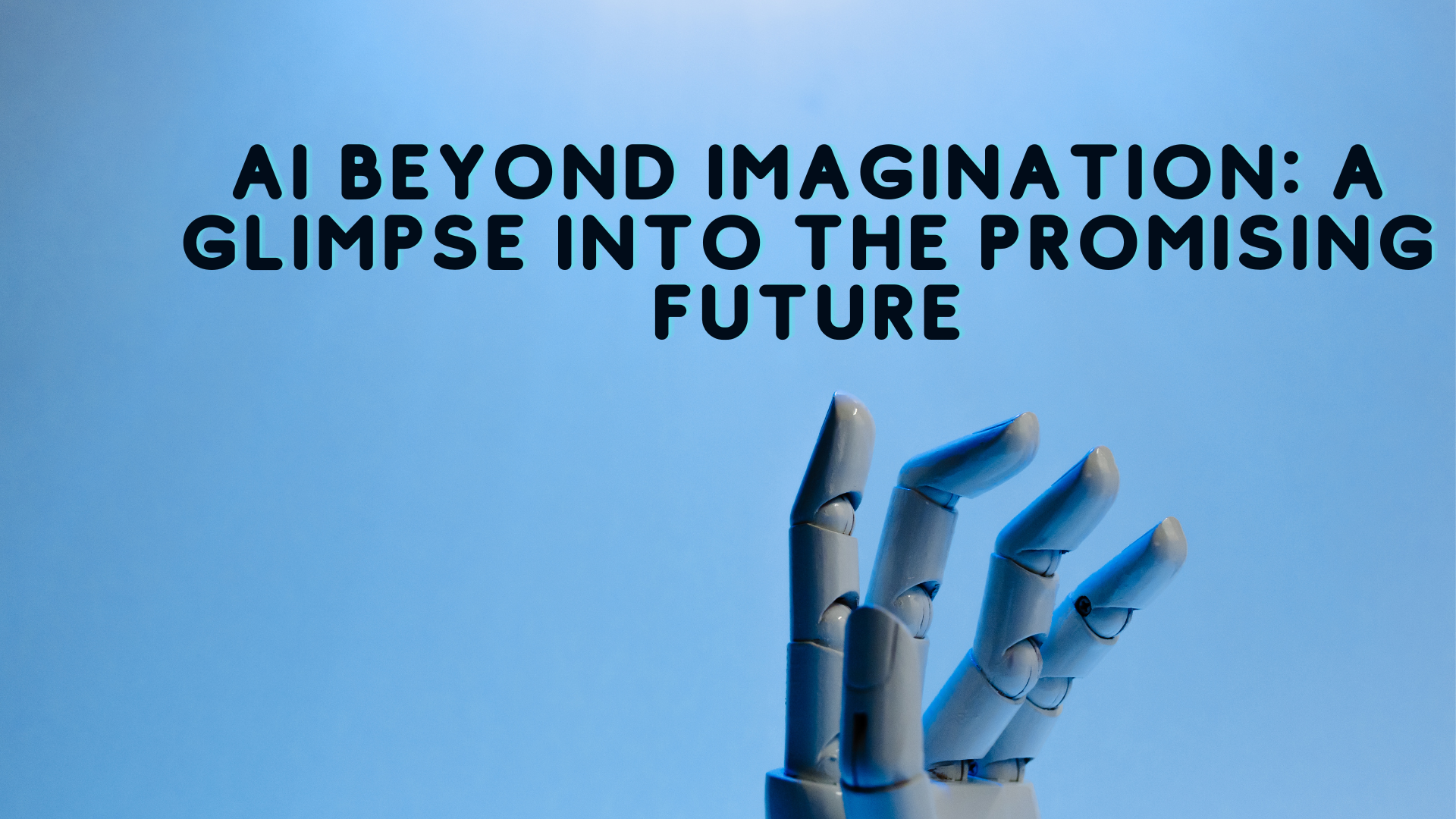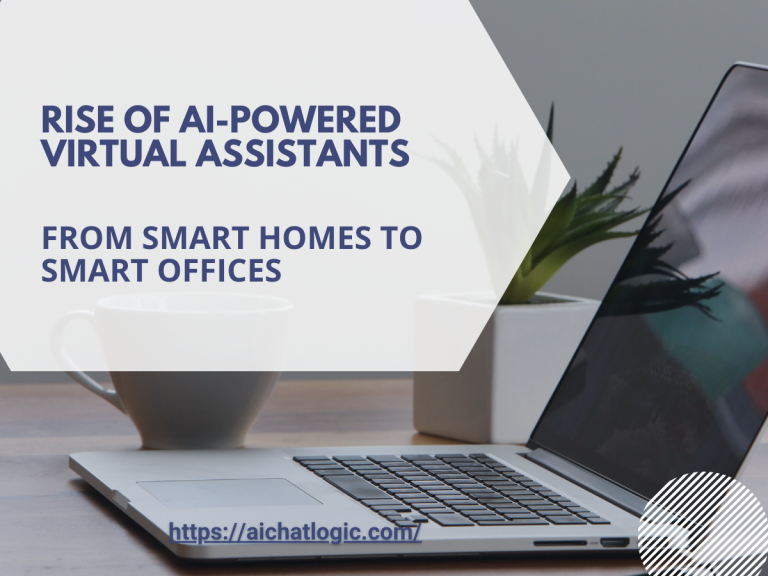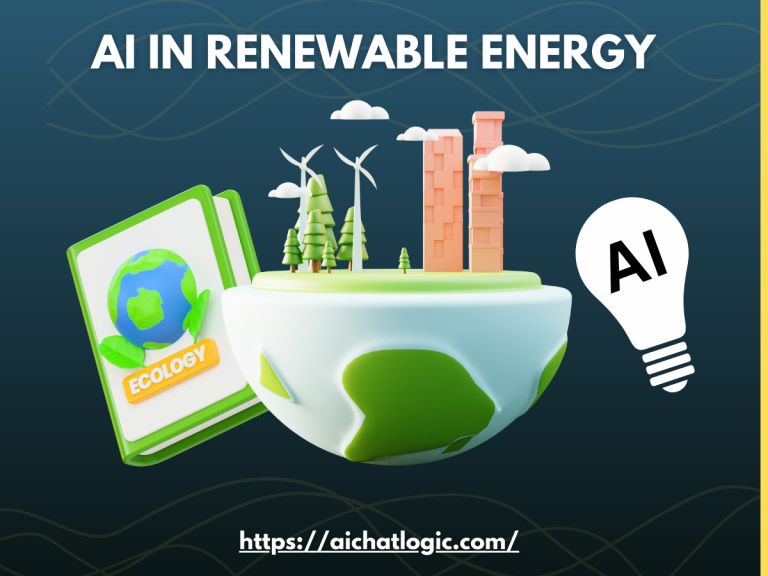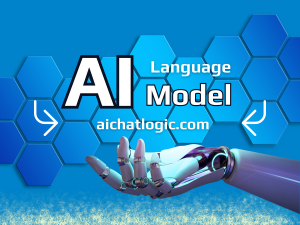Introduction
Artificial Intelligence (AI) has rapidly advanced in recent years, surpassing our expectations and transforming various aspects of our lives. The potential of AI is beyond imagination, with its applications ranging from healthcare to transportation, education to entertainment, and even business to communication. This article explores the evolving landscape of AI and its impact on different industries, as well as the ethical considerations and challenges that arise in this promising future.
1. The Evolution of AI
The journey of AI began several decades ago, with early pioneers laying the foundation for the development of intelligent machines. From basic rule-based systems to advanced machine learning algorithms, AI has come a long way. The introduction of neural networks and deep learning has further revolutionized the field, enabling AI systems to learn and adapt from vast amounts of data.
2. AI in Everyday Life
AI has seamlessly integrated into our daily lives, often without us realizing it. Virtual assistants like Siri and Alexa help us with tasks, while smart home devices automate and optimize our living spaces. AI-powered recommendation systems personalize our online experiences, suggesting products, movies, and music based on our preferences. These advancements enhance convenience and efficiency in our day-to-day activities.
3. AI in Healthcare
The healthcare industry has witnessed remarkable advancements through AI. Machine learning algorithms can analyze medical images, assisting in early detection and diagnosis of diseases. AI-powered robots aid in complex surgeries, enhancing precision and reducing human errors. Additionally, predictive analytics helps healthcare professionals identify patterns and make informed decisions for patient care.
4. AI in Transportation
The transportation sector is being revolutionized by AI. Autonomous vehicles are becoming a reality, offering enhanced safety, reduced traffic congestion, and improved fuel efficiency. AI algorithms optimize routes and schedules for logistics, leading to cost savings and streamlined operations. Smart traffic management systems utilize AI to monitor and control traffic flow, reducing accidents and improving overall transportation efficiency.
5. AI in Education
AI has the potential to transform education by personalizing learning experiences. Intelligent tutoring systems adapt to individual students’ needs and provide targeted feedback. Natural language processing enables AI to facilitate language learning and translation. Moreover, AI-powered tools assist educators in creating engaging content and assessing student performance.
6. AI in Entertainment
The entertainment industry has embraced AI to enhance creativity and deliver immersive experiences. AI algorithms analyze user preferences to recommend movies, shows, and songs, making entertainment more personalized. Virtual reality and augmented reality technologies powered by AI provide interactive and realistic experiences. AI-generated content, such as music and artwork, pushes the boundaries of creativity.
7. AI in Business
AI is reshaping the business landscape, empowering organizations to make data-driven decisions and optimize processes. Intelligent chatbots provide customer support, improving response times and user satisfaction. Predictive analytics helps businesses identify market trends and develop effective strategies. AI-powered robots automate repetitive tasks, freeing up human resources for more complex and creative endeavors.
8. AI in Communication
AI is revolutionizing communication by breaking language barriers and facilitating seamless interactions. Natural language processing enables chatbots and virtual assistants to understand and respond to human queries. AI-powered translation tools bridge linguistic gaps, fostering global communication and collaboration. Real-time language processing allows for accurate transcription and interpretation, making communication more accessible.
9. AI and Job Market
The integration of AI into the job market raises concerns about job displacement and the changing nature of work. While certain roles may become automated, new opportunities will emerge that require human creativity, critical thinking, and emotional intelligence. Collaborative efforts between humans and AI systems can lead to more efficient and innovative workplaces.
10. Ethical Considerations
As AI becomes more pervasive, ethical considerations must be at the forefront of its development and deployment. Issues like privacy, bias, and accountability need to be addressed to ensure that AI systems are fair, transparent, and trustworthy. Establishing ethical frameworks and regulations will be crucial in shaping a responsible AI future.
11. Overcoming Challenges
The rapid advancement of AI also poses challenges that need to be overcome. Ensuring data privacy and security is paramount to protect individuals and organizations. Addressing the ethical implications of AI algorithms and decision-making processes is essential for building trust. Collaborative efforts between policymakers, researchers, and industry experts can shape the future of AI in a way that benefits society as a whole.
12. Conclusion
The future of AI is brimming with possibilities beyond our imagination. Its impact across industries is transforming the way we live, work, and communicate. By leveraging the power of AI responsibly and addressing ethical considerations, we can harness its potential to create a brighter and more inclusive future.
FAQs
1. What is AI?
AI stands for Artificial Intelligence. It refers to the development of computer systems that can perform tasks that would typically require human intelligence, such as problem-solving, pattern recognition, and decision-making.
2. How is AI used in healthcare?
AI is used in healthcare for various purposes, including medical image analysis, predictive analytics, robot-assisted surgeries, and personalized medicine. It helps in improving diagnosis accuracy, patient care, and operational efficiency in healthcare settings.
3. Can AI replace human jobs?
While AI has the potential to automate certain tasks and job roles, it also creates new opportunities and changes the nature of work. Some jobs may become obsolete, but new roles that require human creativity, critical thinking, and emotional intelligence are likely to emerge.
4. Are there any ethical concerns related to AI?
Yes, the integration of AI raises ethical concerns such as privacy, bias, and accountability. It is crucial to develop responsible AI systems that are fair, transparent, and trustworthy. Establishing ethical frameworks and regulations is essential to mitigate these concerns.
5. What are the challenges associated with AI?
Some of the challenges associated with AI include data privacy and security, ethical implications, and potential biases in AI algorithms. Overcoming these challenges requires collaboration between policymakers, researchers, and industry experts to ensure responsible AI development and deployment.












+ There are no comments
Add yours